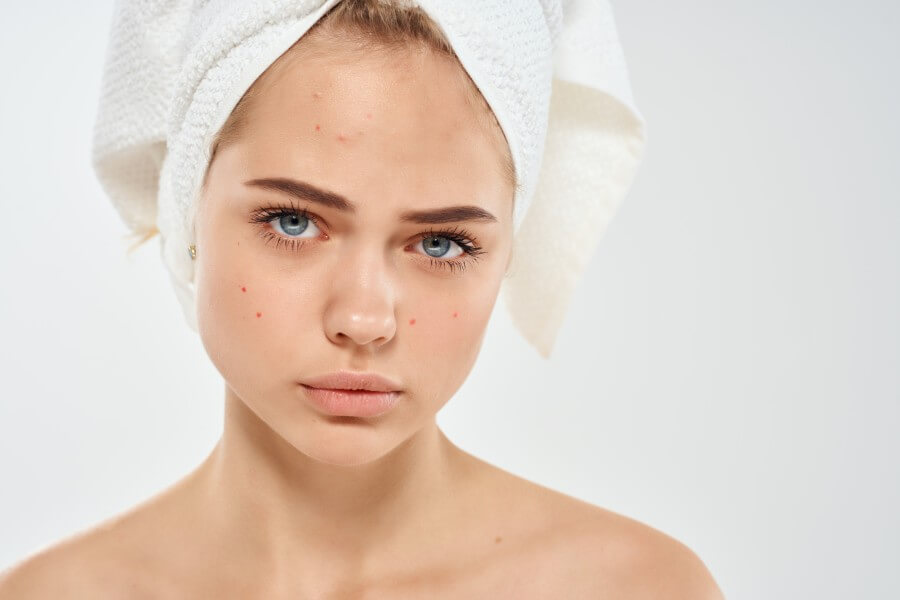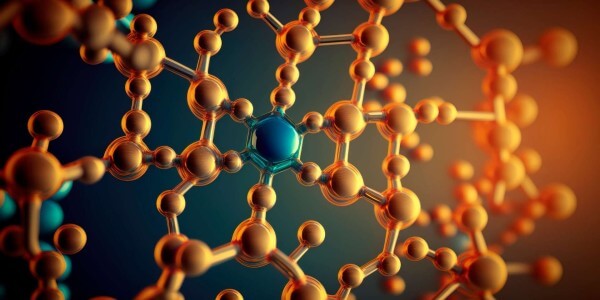Reviva Labs, Skin Care
Understanding Healthy Skin and Acne
Healthy skin is often perceived as smooth, clear, and free from blemishes. However, the reality is more nuanced. The relationship between healthy skin and acne is complex, challenging the traditional notion that acne only occurs on unhealthy skin. In truth, even the healthiest skin can experience breakouts, and understanding why is key to managing this common skin condition.
Acne is primarily caused by clogged pores, excess oil production, bacteria, and inflammation. These factors can affect anyone, regardless of their overall skin health. For instance, a person with a diligent skincare routine and a balanced diet may still suffer from acne due to genetic predisposition or hormonal fluctuations. This reality underscores that having acne does not necessarily equate to having unhealthy skin.
The Role of Genetics and Hormones
Genetics play a significant role in determining who gets acne. If your parents had acne, you are more likely to experience it too. Hormonal changes, particularly during puberty, menstruation, pregnancy, and menopause, can also trigger acne. These hormonal fluctuations can lead to increased oil production and changes in skin cell turnover, both of which can contribute to acne development.
For example, teenagers often experience acne due to the surge of androgens, hormones that increase oil production in the skin. Similarly, women may notice breakouts around their menstrual cycle or during pregnancy due to hormonal shifts. These scenarios illustrate that even if someone takes excellent care of their skin, hormonal changes can still cause acne.
Lifestyle and Environmental Factors
Lifestyle choices and environmental factors can also impact skin health and contribute to acne. Stress, diet, and exposure to pollutants are common culprits. Stress, for instance, can lead to hormonal imbalances that trigger acne. A study published by the American Academy of Dermatology found that stress-related acne is a genuine concern, highlighting the connection between mental health and skin health.
Diet can influence acne as well. Foods high in refined sugars and dairy products have been linked to breakouts. Consuming a balanced diet rich in fruits, vegetables, and whole grains can promote healthier skin, but it does not guarantee an acne-free complexion. Environmental factors such as pollution and humidity can exacerbate acne by clogging pores and increasing oil production.
Skincare Products and Practices
The use of certain skincare products and practices can also contribute to acne, even if the skin is otherwise healthy. Products that are too harsh or not suitable for one’s skin type can strip the skin of its natural oils, leading to overproduction of sebum and subsequent breakouts. It is essential to choose non-comedogenic products that do not clog pores and to follow a consistent skincare routine tailored to individual skin needs.
Over-washing or exfoliating the skin can disrupt the skin’s natural barrier, making it more susceptible to acne. It’s crucial to strike a balance in skincare practices to maintain healthy skin without causing irritation or breakouts. For example, using gentle cleansers and avoiding aggressive exfoliants can help keep the skin clear and healthy.
Internal Health and Its Impact on Skin
Internal health can significantly affect skin conditions, including acne. Conditions such as polycystic ovary syndrome (PCOS) and other hormonal disorders can lead to chronic acne. Additionally, medications like corticosteroids and lithium can cause acne as a side effect. It is important for individuals to understand that managing these underlying health issues is crucial for controlling acne.
A healthy diet, regular exercise, and adequate sleep contribute to overall well-being, which in turn affects skin health. Staying hydrated and consuming antioxidant-rich foods can support the skin’s natural defenses and promote a clearer complexion. However, these measures alone may not completely prevent acne if underlying health issues are present.
The Psychological Impact of Acne
Acne can have a profound psychological impact, affecting self-esteem and confidence. It is crucial to approach acne treatment with empathy and understanding. People with healthy skin who experience acne may feel frustrated and confused, believing they are doing everything right yet still struggling with breakouts.
Support from dermatologists and skincare professionals can make a significant difference. Effective treatment plans tailored to individual needs can help manage acne and improve skin health. Additionally, mental health support can address the emotional challenges associated with acne, promoting a more holistic approach to treatment.
Embracing the Complexity of Skin Health
The notion that healthy skin cannot have acne is a myth. Acne is a multifaceted condition influenced by genetics, hormones, lifestyle, skincare practices, and internal health. Recognizing this complexity is essential for managing and treating acne effectively. While a balanced diet, proper skincare, and a healthy lifestyle can promote skin health, they do not guarantee an acne-free complexion.
It is important to approach acne with a comprehensive understanding of its causes and contributing factors. By doing so, individuals can better manage their skin health and address acne without unnecessary frustration or stigma. Embracing the reality that healthy skin can indeed have acne is a step towards more realistic and effective skincare.






